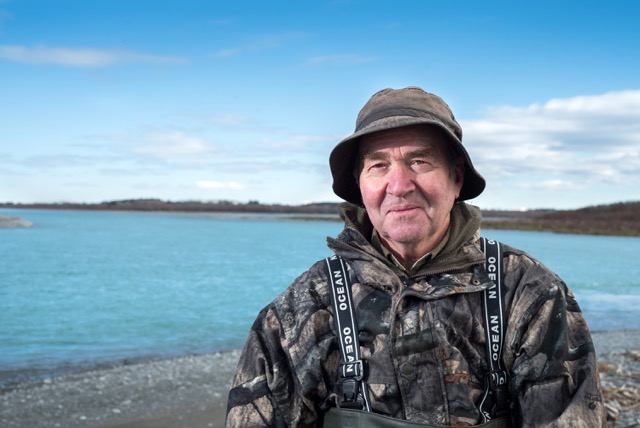Salmon farming is a high risk venture with marginal, uncertain economic returns says the NZ Federation of Freshwater Anglers (NZFFA). NZFFA president Dr Peter Trolove who has aquatic veterinarian qualifications and experience from the UK, said high deaths from King Salmon’s Marlborough Sounds farms had been shown by the dumping of dead fish at Marlborough’s landfills. Radio NZ in a report cited 1000 tonnes of dead, often diseased, salmon were dumped annually.
Responding to King Salmon’s demands to expand and relocate its Marlborough Sounds farms, Peter Trolove said King Salmon’s application to farm nearer Cook Strait would result in privatisation of the public’s sea bed and coast line before necessary environmental and biosecurity standards have been developed.
“NZFFA has witnessed nationwide freshwater degradation due to a failure to identify and impose limits on the take and pollution, (nitrate/pathogens), of our rivers and aquifers. NZKS’s ambitions to greatly expand its marine farming into coastal waters beginning with their latest application is likely to lead to similar unacceptable cumulative effects in New Zealand’s presently envied marine environment,” he said.
Precedent Danger
Dr Trolove expressed concern that the Marlborough District Council was now confronted with the task of managing a consent process before national marine environmental standards (NES), and national marine biosecurity standards were in place.
“A precedent will be set. Once the first coastal marine farm consent is issued and considered to have “no more than minor effects”, it will be impossible to decline similar applications under the rules of the RMA.”
Dr Trolove said the corporate company has invested heavily in PR hype to sell its story and it seemed Fishery Minister Stuart Nash and environment Minister David Parker appeared caught up in the hype judging by their statements affirming they planned to assist the aquaculture industry grow to a $3 billion industry by 2035 by “streamlining regulations”.
Several Problems
New Zealand salmon farming is more problematic;
(a)There is insufficient wild fish to sustain the global salmon farming industry – turning limited wild fish into food for farmed fish is not sustainable.
(b)New Zealand salmon farms have to import fish feed which accounts for 60 -70% of production costs. This will reduce the net benefit to New Zealand’s economy.
(c)Presently salmon farming accounts for just 17% of New Zealand’s aquaculture industry.
(d)NZKS accepts as normal 25% deaths of the salmon placed in growing cages This would be seen as a disaster in any other farming operation.
(e)These mortalities which reached over 40% at one site have since been shown to be associated with two fish pathogens one of which was probably a disease incursion from offshore. Despite this NZKS and he Ministry of Primary Industries continue to pass these deaths off as the effects of global warming.
(f)An independent advisory group affirmed the likelihood of the deaths being due to infection. The group was critical of NZKS’s biosecurity and lack of an animal welfare programme. Further research and biosecurity support from MPI was recommended.
A salmon farm is simply a marine feed lot with its pollution released into the adjacent environment. A high protein diet means fish excrete more nitrogen than cows.
UK Situation
Referring to his experience in the UK, Dr Trolove said salmon farming in the northern hemisphere, especially Scotland and Norway, was losing its “social license” to operate due to unacceptable mortalities and disease “spill over” wiping out valued recreational salmon and trout fisheries. The Scottish government now required monthly reporting of salmon deaths on marine farms.
“The NZFFA pleads for a precautionary approach to this application to prevent another generational pollution legacy such as occurred in Central Canterbury when a government controlled region council knowingly rammed through a toxic irrigation project to increase GDP,” he said. “Limits on the development of coastal marine farms must be established before this horse has bolted”.
© Dr Peter Trolove

